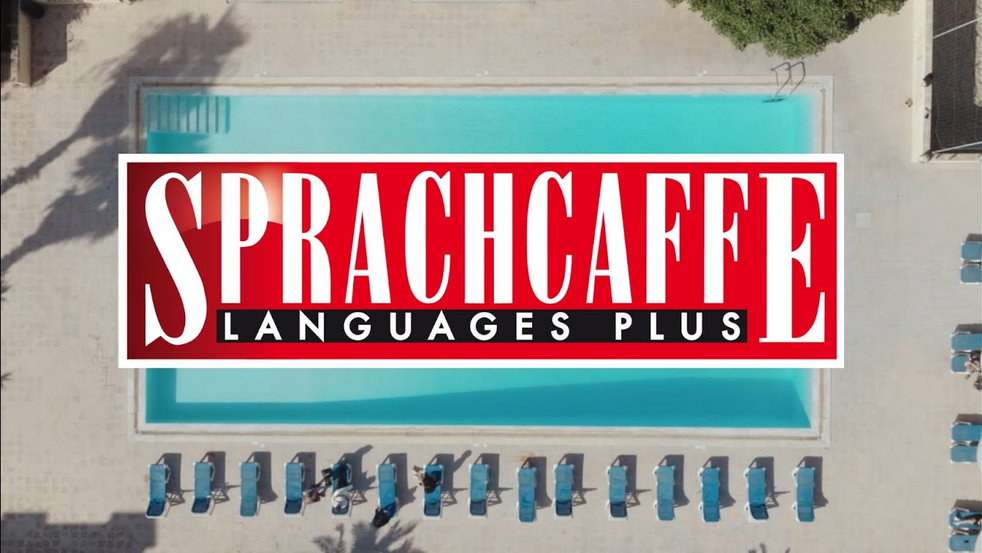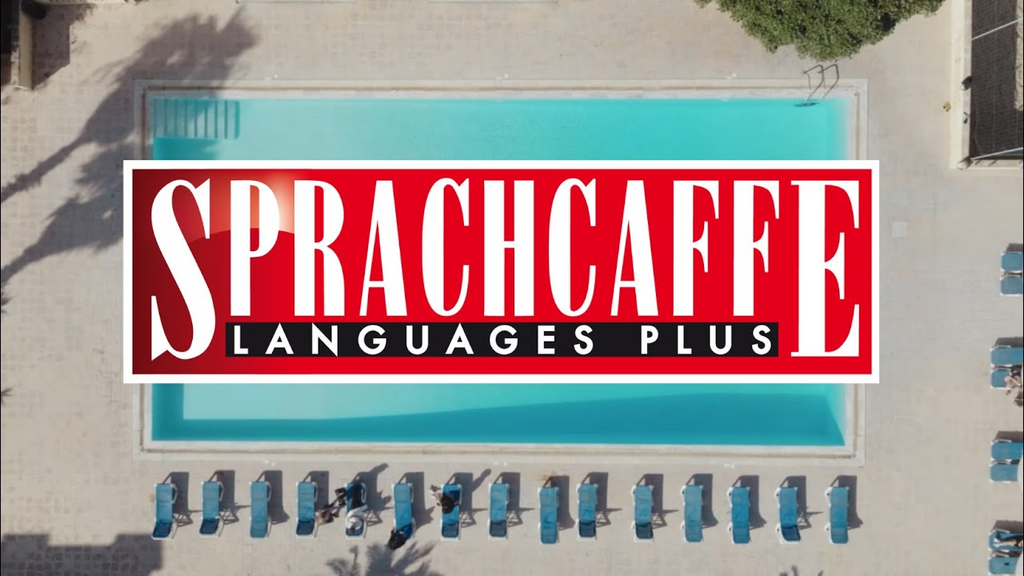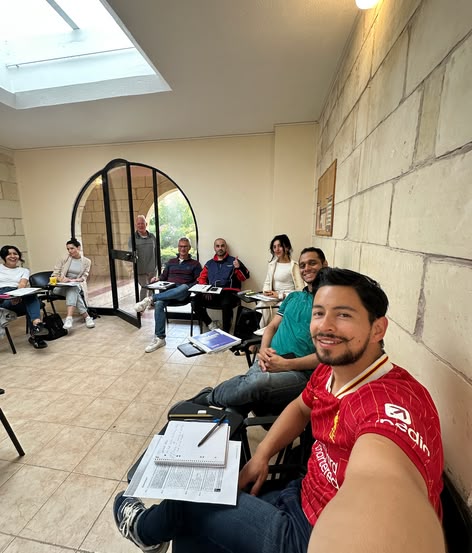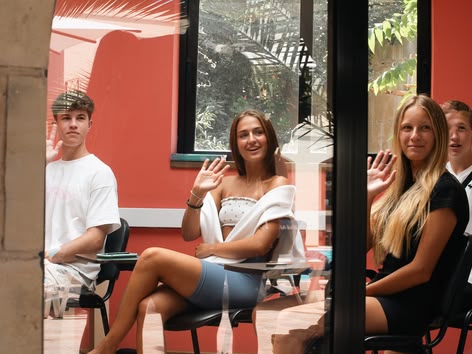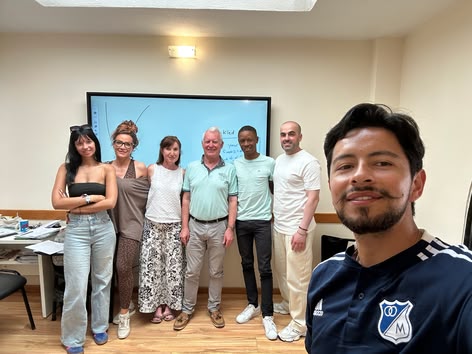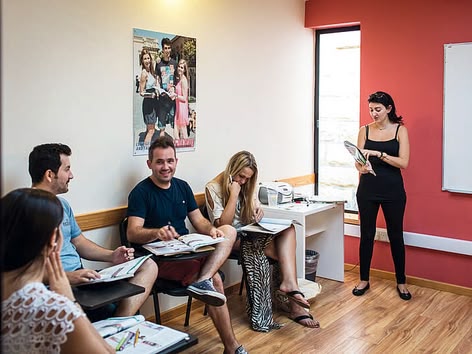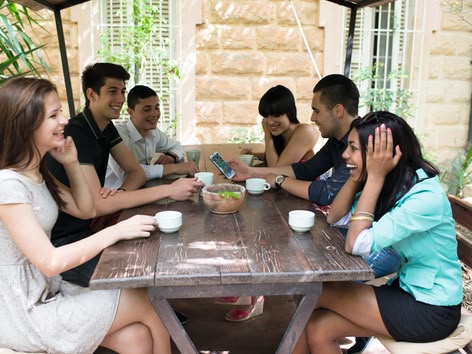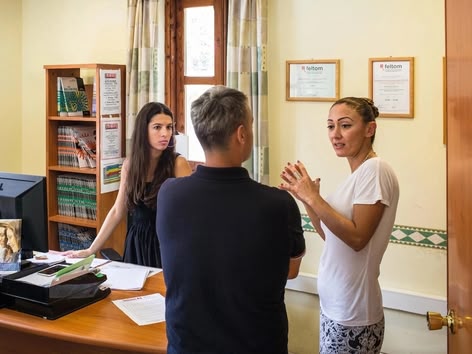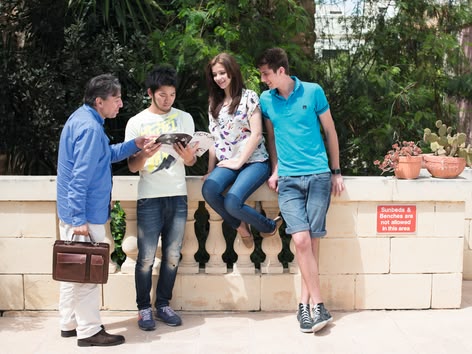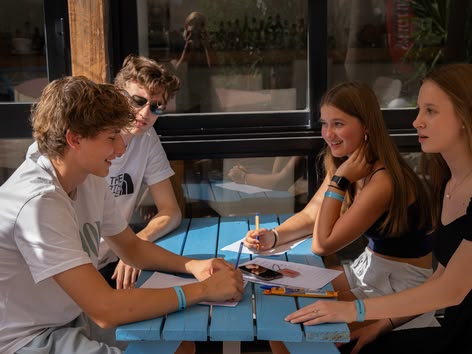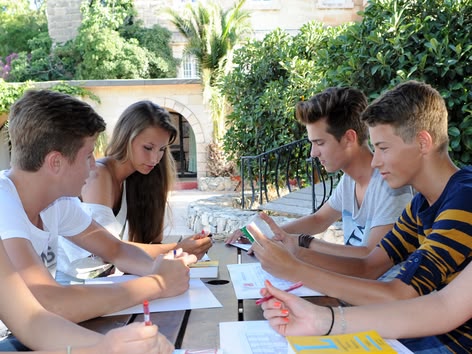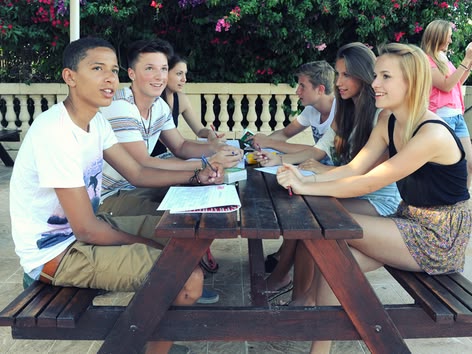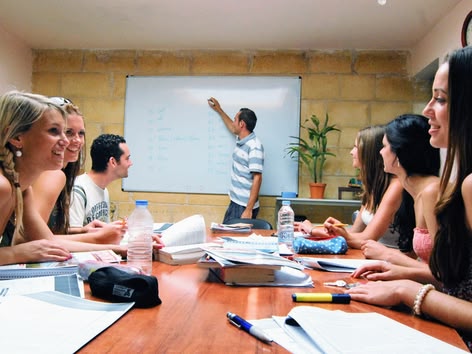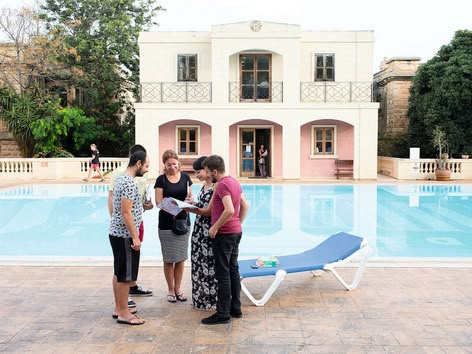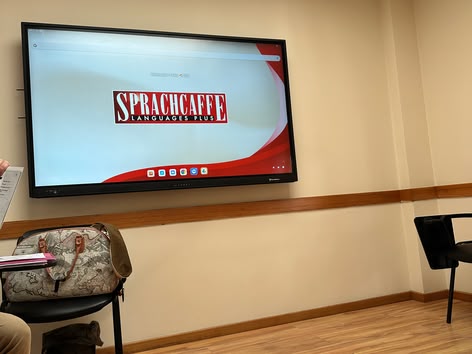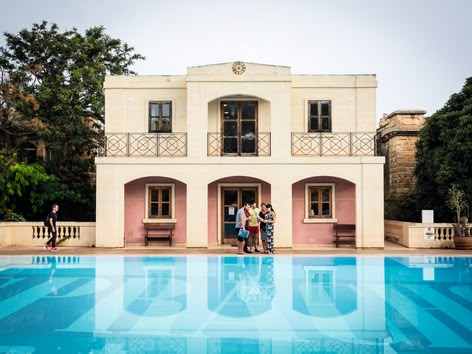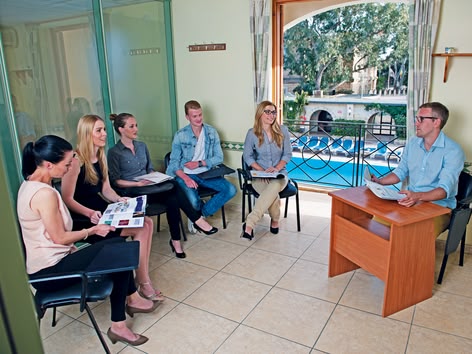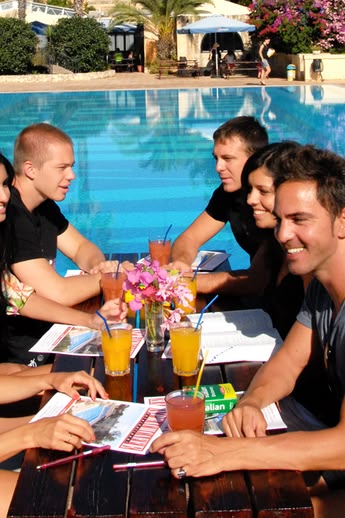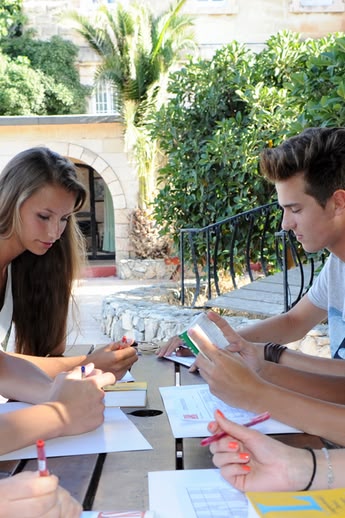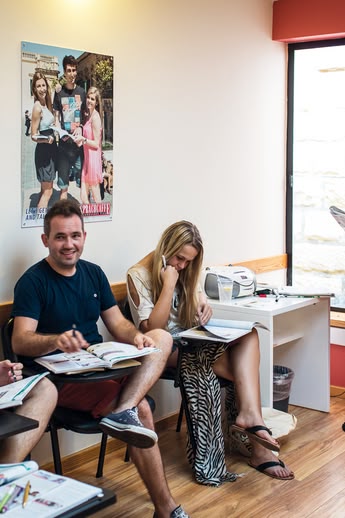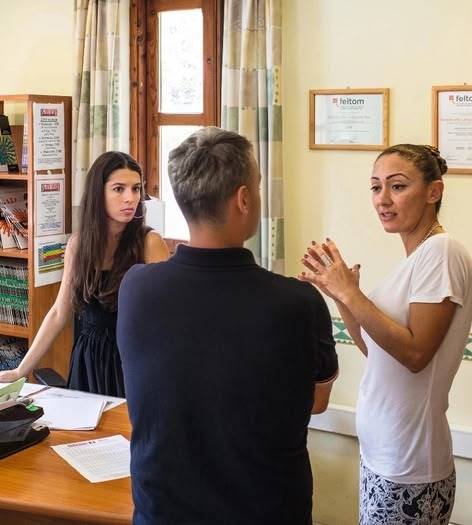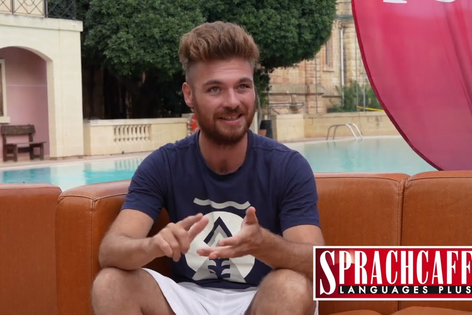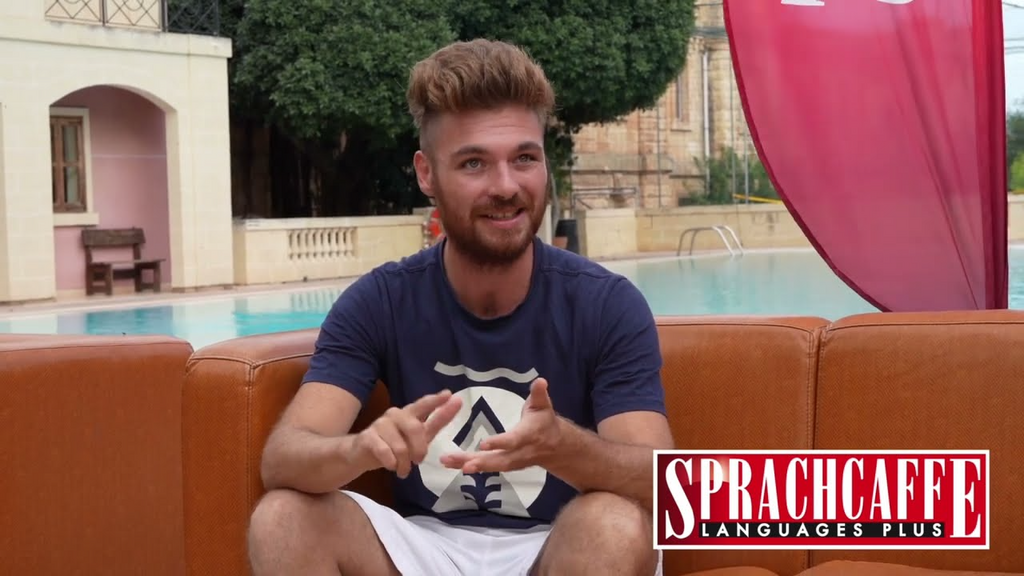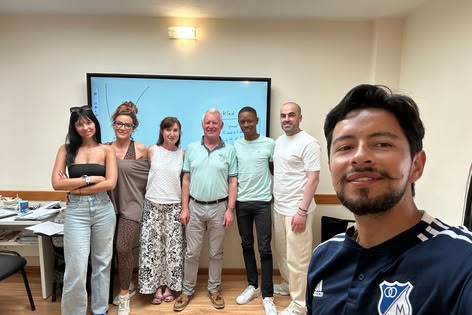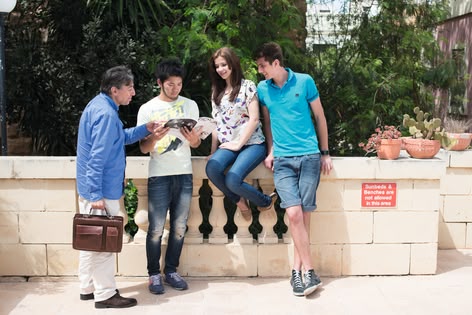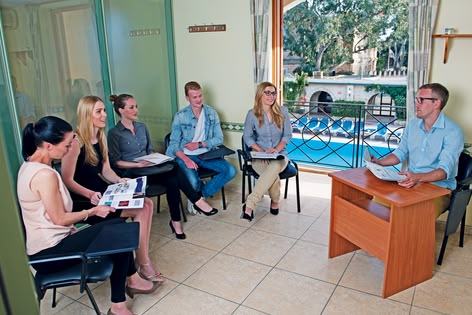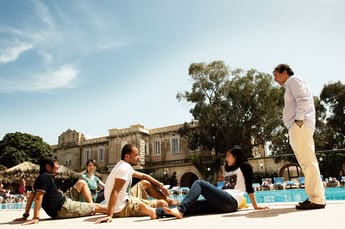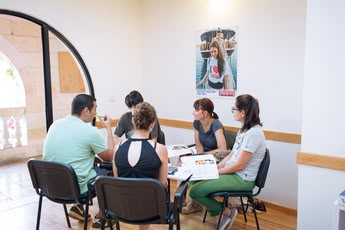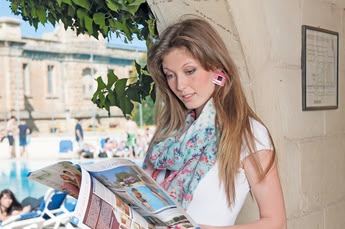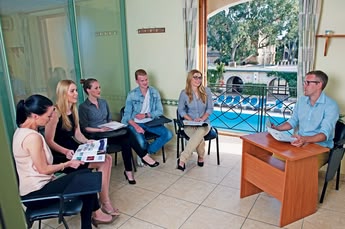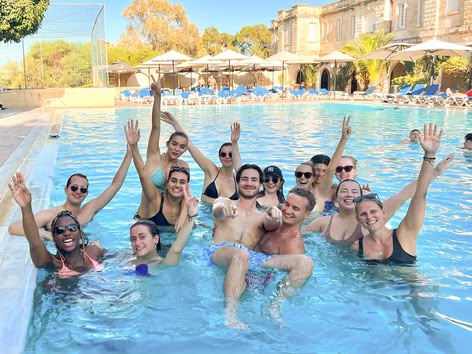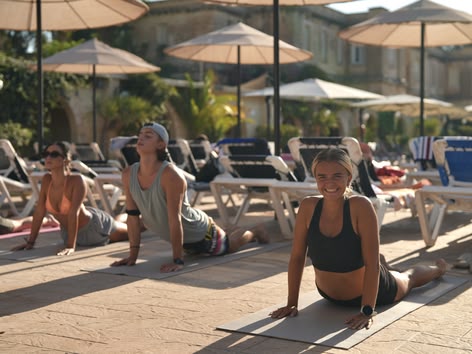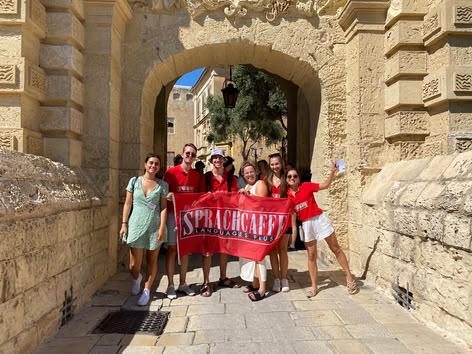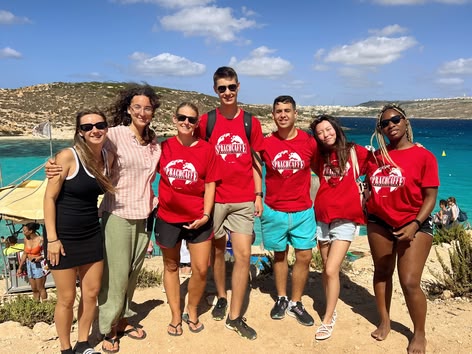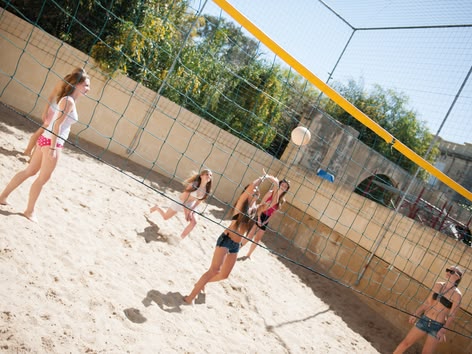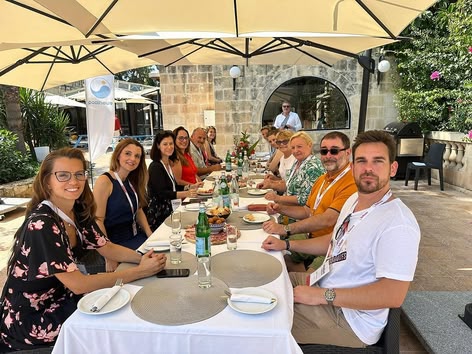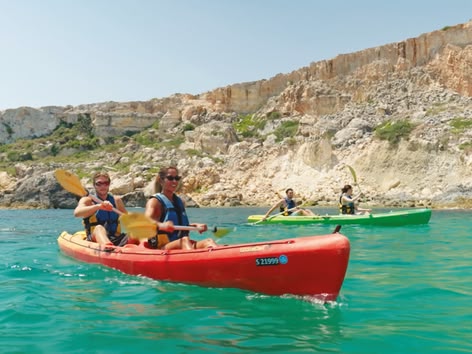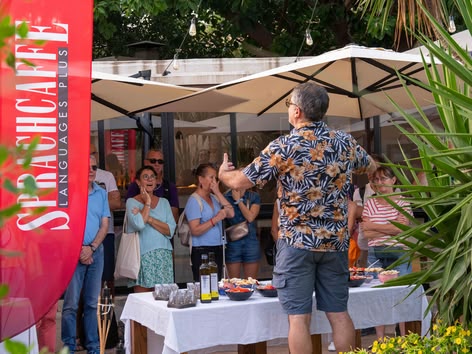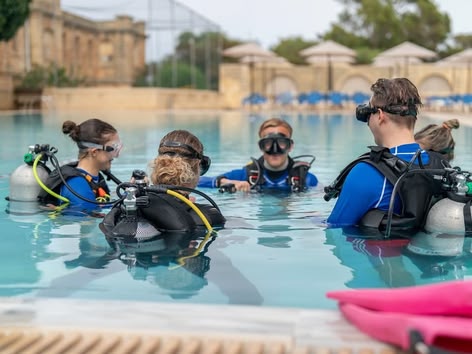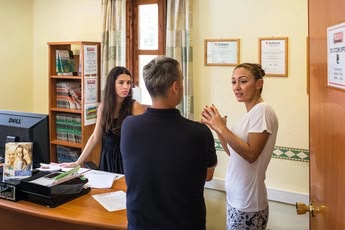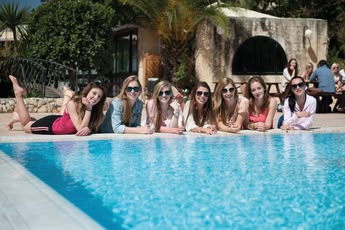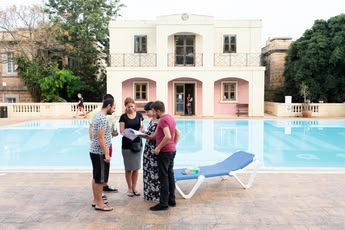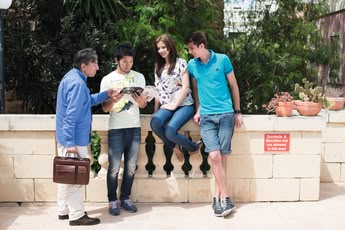English Language School in Malta
Learn and Relax in One Perfect Setting!
Enroll in our renowned English language school, founded in 1991 and recognized for its high quality teaching for all ages and abilities, beautiful campus, and relaxed atmosphere. The Sprachcaffe English school not just a language school in Malta, but an experience curated just for you!
Why Choose Our English School?
Quality Education
Our dedicated educators, accredited by ALTO, FELTOM, and WYSE, are passionate about teaching English. Every student, whether beginner or professional, can find the right course to suit their needs.
Discover & Connect
Have unique experiences, connect with like-minded learners, and be a part of our vibrant international Sprachcaffe family.
Varied Leisure Programs
We believe that language learning truly happens outside the classroom, which is why we organise many activities for our students beyond lessons. Enjoy Sprachcaffe's leisure activities, group activities, excursions, and self-access resources like DVDs, books, and dedicated study rooms.
Fully-Equipped Campus
Learn, play, eat, and relax! Our Sprachcaffe Campus offers classes, accommodation, a restaurant, bar, and even a swimming pool, all in one place. We take care of your daily needs, so you can learn English and have fun.
Perfect Location
Our English school is located in peaceful Pembroke, only a few minutes walk to the beach but close to the lively Paceville entertainment district.
Experience and Passion
Sprachcaffe has fostered global connectedness through language learning for over 40 years, and our English school on Malta reflects the passion and years of experience we have. But don't take our word for it, check out testimonials from Sprachcaffe Malta alumni.
Meet Sprachcaffe Malta's Exceptional Teachers
At Sprachcaffe English Language School Malta, the caliber of our teaching team is at the heart of our renowned language courses. Each educator is a native level English speaker, each with a solid academic background, often holding university degrees in language or education. This unique blend of native fluency and academic expertise is the foundation of the high-quality instruction we're known for.
In the classroom, our teachers employ an interactive, student-centered approach. They focus on practical language use, creating a dynamic learning environment where students actively engage with English in real-world contexts. This method ensures that learning is not only effective, but also genuinely enjoyable and relatable.
A significant aspect of our teaching methodology is the conscious use of technology. While we incorporate digital tools to aid learning, we balance this with traditional, hands-on methods. This approach ensures that technology enhances, rather than dominates, the learning experience and keeps the focus on authentic language skills.
Discover more about the passion and expertise driving our educational approach at Sprachcaffe Malta! We invite you to watch a video featuring our Director of Studies, who provides deeper insight into the dedication and innovation that characterizes our teaching team.
What Our English Language School Aims to Achieve
Improve your listening
Listening is key when it comes to learning English. Sprachcaffe provides exercises that help you to hone your comprehension skills and become more confident in your conversations.
Better your pronunciation
Knowing the right pronunciation of English words gives you more confidence and makes a better impression. It prevents confusion and helps you converse with others like a native speaker.
Expand your vocabulary
With our help you will master the English vocabulary for your specific level and needs. We also make sure you are able to use your newy-learned vocabulary in real life situations.
Perfect your grammar
Are you ready to take your English skills to the next level? With our specialised programmes, you'll be able to easily learn the peculiarities of the English language and become a grammar master!
Student Life Beyond The Classroom
Always be open-minded and respectful. This is a great chance to learn, share, and create lasting memories together!
Welcome Party: Jump directly into the heart of Sprachcaffe Malta! As you start your English journey, we invite you to a fun-filled evening to meet fellow students from around the world. Enjoy local music, taste Maltese treats, and make lifelong friends. Perfect for newcomers, this party will make you feel right at home as you immerse yourself in the country's linguistic environment. Familiarize yourself with the culture, connect with classmates, and kickstart your unforgettable learning adventure.
Your first day at the English language school will be exciting! You'll join a class that's just right for your level, ensuring you feel comfortable yet challenged. Around midday, everyone gets a break to enjoy lunch, chat with new friends, and relax. It's a great way to dive into the world of English and make lasting memories!
Discover Sprachcaffe Malta's Exciting Activity Line-Up
Led by a special leisure team make the English language school even more fun. We plan exciting trips for you: Visit Valletta, Malta's lively capital, or see the stunning Blue Lagoon on Comino island. Don't miss the Malta Tour - it's a top highlight! Plus, there are parties to enjoy. All these activities make learning fun and let you discover Malta's beauty. Join in and have a great time! You find more inspiration on the things to do in Malta page.
For Juniors: Our Junior Programme is a whirlwind of excitement and learning. Activities range from horse riding and go-karting to shopping in Sliema's vibrant streets. Students can explore Valletta's historic charm, the stunning Blue Lagoon, and Malta's picturesque landscapes. The programme includes beach parties, karaoke, and student nights in Paceville, providing a full immersion into the fun and culture of Malta, all under expert guidance. Find out more about Activeties for Juniors.
For Individual Travelers: Adult learners at Sprachcaffe Malta experience a unique integration of language learning with Malta's dynamic lifestyle. Imagine practicing English amidst Malta's beautiful beaches, historic locales, and lively social scenes. Activities include visiting St. Peter's Pool and the ancient city of Mdina, offering immersive opportunities to use and enhance English skills while engaging with the island's rich cultural tapestry. Find out more about Activities and Excursions for individual Travelers.
Discover the Joy of Learning: Exclusive English Language Holidays for Adults 40+
Embark on an enchanting English learning voyage with Sprachcaffe Malta - specially crafted for the vibrant adult learner aged 40, 50, and 60 plus. Our English language holidays stand apart, blending immersive language instruction with the allure of cultural exploration and serene leisure pursuits. Dive into an experience that not only promises to polish your English proficiency but also invites you to delve into the heart of Malta's storied past and unwind in its tranquil beauty. In our English learning programme, tailored specifically for the mature student, you'll find courses that flexibly match your learning rhythm and personal interests. Plus, take advantage of the nearby Pembroke public library, a perfect place to explore diverse books and further enhance your learning. Transform your pursuit of English mastery into an unforgettable experience with our meticulously designed programmes for adult learners aged 40, 50, and 60 plus, where every lesson is a step towards new discoveries and friendships.
Frequently Asked Questions
Here you will find the answers to the questions most frequently asked by those interested in learning english in Malta.
Our English learners join us from all over the world, coming mainly from Latin America, Europe, and Asia. Different seasons bring students from different corners of the world!
To best prepare for an English language course, determine first why you're learning the language, such as for travel or business. Before the course starts, familiarise yourself with the language's basic sounds and common words. Watching films or listening to music in that language can help train your ear.
Get prepared to unlock the world of English with our comprehensive online guide, tailored to make your learning journey seamless and enjoyable. Dive in and discover: Basic introduction to English grammar and vocabulary.
Stay positive and patient as language learning can be challenging. Remember: Learning a language is a journey. Enjoy the process and celebrate small steps!
Whether you need a visa to study English in Malta depends on your nationality and the duration of your stay. Here's a general overview updated in January 2023:
EU/EEA/Swiss Nationals: Citizens of the European Union (EU), European Economic Area (EEA), and Switzerland do not need a visa to enter Malta for any purpose, including studying. However, if you plan to stay for more than 90 days, you may need to register with the local authorities and obtain a residence permit.
Non-EU/EEA/Swiss Nationals:
- Short Stays (up to 90 days): If you're from a country visa that does not need a visa for short stays in the Schengen Area, you won't need a visa for a short course. However, if your country is not visa-exempt for short stays in the Schengen Area, you'll need to apply for a Schengen visa.
- Long Stays (more than 90 days): If you intend to study in Malta for more than 90 days, you'll generally need to apply for a national long-stay visa, regardless of your country of origin.
Please note that visa policies and requirements can change. It's essential to consult the official website of the Maltese government or contact the Maltese consulate or embassy in your country for the most up-to-date information. We can provide you with a letter of acceptance for a small fee, which you can then use to apply for a visa. Here you will find detailed information on the application and extension procedures for visas to Malta and the documents required.
English courses are held with us throughout the year. You can also drop in at short notice and join an existing study group.
It is not necessary to register weeks in advance. But early registration increases the chance that you will get a place. Especially in the popular travel months, the available places are of course limited.
From the airport you can take bus X1 and get off at Pembroke Park and Ride. The bus runs until approx. 22:50. Alternatively, you can take a taxi at the airport for about €20.00. If you are travelling in a group, we can of course organise a transfer for you.
Access to the campus and your appartment is via a reception which is staffed around the clock. This is also where you pick up your keys to your Apartment.
If you arrive before 3 pm, you can of course already use the campus amenities such as the pool, bar and restaurant. While you wait for your room to be ready. Should it be necessary to store your luggage upon arrival or departure, this is of course always possible.
Still have questions about English courses or the language school?
Convinced? Then enroll today and secure your place on one of our English courses.

